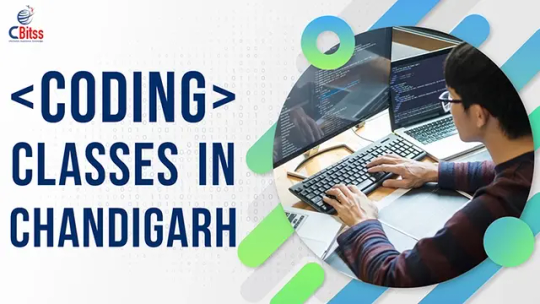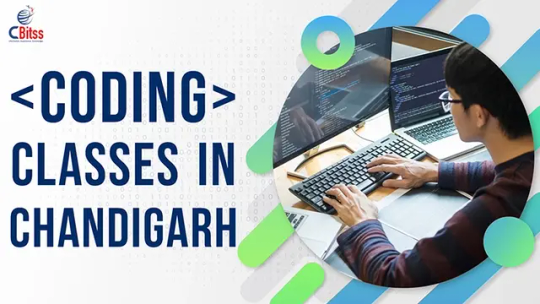Text
Which language is best for coding interviews?

When it comes to coding interviews, the choice of programming language matters less than your problem-solving skills and ability to communicate your thought process effectively. However, there are some programming languages that are commonly recommended for coding interviews due to their readability, versatility, and the extensive resources available for interview preparation. Here are a few popular choices:
Python
Python is often recommended for coding interviews because of its clean and concise syntax. It allows you to focus on solving the problem rather than dealing with complex language syntax. Python is also versatile and can be used for a wide range of interview scenarios, from algorithms and data structures to system design.
Java
Java is a widely used language in the software industry and is frequently chosen for coding interviews. It's known for its platform independence and strong support for data structures and object-oriented programming. Many interview questions are available in Java, and it's the primary language used for Android app development.
C++
C++ is another common choice, particularly for companies and roles that require a strong understanding of memory management and low-level programming. It's a powerful language that can be used for solving complex algorithmic problems efficiently.
JavaScript
JavaScript is essential for front-end web development and is often chosen for interviews related to web technologies. If you're applying for roles in web development or full-stack development, having a good grasp of JavaScript is important.
C#
C# is frequently used for interviews at companies that work with Microsoft technologies, particularly for roles related to game development, Windows application development, or Microsoft Azure.
0 notes
Text
Is it hard to pass coding interview?

Coding interviews can be challenging, but whether they are "hard" or not depends on various factors, including your level of preparation, the specific interview format, the company's expectations, and your prior coding experience. Here are some factors to consider:
Preparation
Adequate preparation is crucial for success in coding interviews. If you've spent time learning and practicing data structures, algorithms, and problem-solving techniques, you'll be better equipped to tackle interview questions.
Experience
Your level of experience in coding and problem-solving plays a significant role. If you're already proficient in coding and have experience with algorithms and data structures, coding interviews may be less challenging.
Interview Format
The difficulty of coding interviews can vary based on the format. Some companies focus on algorithmic questions, while others emphasize system design, behavioral questions, or coding exercises related to the role.
Company Expectations
The expectations of the company you're interviewing with can affect the perceived difficulty of the interview. Some companies have rigorous technical assessments, while others may have more lenient requirements.
Nervousness
Interview nerves can make even simple coding questions seem challenging. Practice mock interviews to help alleviate nervousness and improve your performance.
Specific Questions
The complexity of coding questions can vary widely. Some questions are straightforward and test basic concepts, while others are highly complex and require advanced problem-solving skills.
Real-Time Pressure
Coding interviews typically have a time constraint, which can add to the pressure. Being able to think clearly and write code efficiently under time pressure is a skill that requires practice.
Feedback and Adaptation
Some candidates may face initial challenges but learn from feedback and adapt their preparation strategies to improve over time.
0 notes
Text
How long does it take to prepare for a coding interview?

The amount of time it takes to prepare for a coding interview can vary widely depending on your current skill level, the complexity of the job you're applying for, and your familiarity with the specific technologies and algorithms required for the interview. Here are some general guidelines to consider:
Prior Experience
If you already have a strong foundation in coding and data structures, you may need less time to prepare compared to someone who is new to programming.
Job Requirements
The time required can also depend on the specific job requirements. Entry-level positions may require less intensive preparation than senior or specialized roles.
Algorithm and Data Structures Knowledge
If your interview involves algorithms and data structures questions (common in technical interviews), you should spend a significant amount of time mastering these concepts. This may take several weeks to a few months.
Coding Challenges
Practicing coding challenges and problems is essential. Aim to solve a wide range of problems to build problem-solving skills. This can take several weeks to months, depending on your starting point.
System Design Interviews
For roles involving system design interviews, you'll need to learn about scalable system architectures. Preparing for these interviews can take a few weeks to months, depending on your experience.
Mock Interviews
Conducting mock interviews with peers or through interview coaching platforms can help you gain confidence and improve your interview skills. Plan for several mock interviews over a few weeks.
0 notes
Text
Is coding a good career path?

Coding course in Chandigarh It can be an excellent career path for many people, but whether it's a good fit for you depends on your interests, goals, and preferences. Here are some factors to consider when determining if coding is a good career path for you:
Pros of a Coding Career
High Demand: The tech industry continues to grow, leading to a high demand for skilled developers and programmers. This demand is expected to persist for the foreseeable future.
Good Salary: Coding careers often come with competitive salaries. Salaries can vary based on factors like location, experience, and specialization, but many coding roles offer above-average pay.
Versatility: Coding skills are versatile and can be applied in various industries and domains, from web development and mobile app development to data science and artificial intelligence.
Remote Work Opportunities: Many coding jobs can be done remotely, offering flexibility in where you work.
Continuous Learning: Technology is constantly evolving, so coding professionals have the opportunity to engage in lifelong learning and stay up-to-date with the latest trends and tools.
Problem Solving: Coding involves solving complex problems, which can be intellectually rewarding for those who enjoy analytical thinking.
Cons of a Coding Career
Learning Curve: Learning to code can be challenging, and it may take time to become proficient.
Continuous Learning: While continuous learning is a pro, it can also be a con for those who do not enjoy or struggle with keeping up with the rapid changes in technology.
Sedentary Work: Coding often involves long hours of sitting at a computer, which can be physically demanding and lead to health issues if not managed properly.
Stressful Deadlines: Depending on the industry and company, coding jobs may come with tight deadlines and high-pressure situations.
Isolation: Remote work or long hours at a computer can lead to feelings of isolation for some individuals.
0 notes
Text
How can I learn coding?

Learning to code can be an exciting and rewarding journey. Here's a step-by-step guide on how to learn coding:
Define Your Goals
Start by determining why you want to learn coding. Do you want to build websites, develop apps, work in data science, or pursue another area of interest? Having clear goals will help you stay motivated and focused.
Choose a Programming Language
Select a programming language that aligns with your goals. For beginners, languages like Python, JavaScript, or Ruby are often recommended due to their simplicity and versatility.
Start with the Basics
Begin your coding journey by learning the fundamentals. This includes understanding concepts like variables, data types, loops, and conditionals. Many online resources and courses cater to beginners.
Online Coding Courses and Tutorials
Enroll in online coding courses or follow tutorials. Websites like Codecademy, Coursera, edX, Udemy, and Khan Academy offer a wide range of programming courses for all skill levels.
Practice Regularly
Coding is a skill that improves with practice. Work on coding exercises and projects to reinforce what you've learned. Sites like LeetCode, HackerRank, and freeCodeCamp offer coding challenges for practice.
Build Projects
Apply your knowledge by building projects. Start with small projects and gradually work your way up to more complex ones. Personal projects not only solidify your skills but also showcase your abilities to potential employers.
Read Documentation and Books
Get comfortable with reading documentation for your chosen language(s). It's an essential skill for developers. You can also supplement your learning with coding books relevant to your interests.
Join Coding Communities
Engage with the coding community by joining forums like Stack Overflow, Reddit's r/learnprogramming, or GitHub. These platforms offer valuable insights, advice, and opportunities to collaborate.
0 notes
Text
Which classes are best for coding?

The Best coding classes for you will depend on your specific goals, prior experience, and the programming languages or technologies you want to learn. Here are some popular types of coding classes, along with examples of when they might be the best fit:
Introductory Programming Classes
If you're new to coding, introductory classes are the best place to start. They cover the basics of programming concepts and often use beginner-friendly languages like Python. Examples include "Introduction to Python" on platforms like Coursera, edX, or Codecademy.
Web Development Classes
If you want to become a web developer, consider classes that focus on web technologies like HTML, CSS, JavaScript, and front-end or back-end development. For instance, "Full-Stack Web Development Bootcamps" from coding bootcamps like General Assembly or online courses like "The Complete Web Developer Course" on Udemy.
Data Science and Machine Learning Classes
For those interested in data analysis, machine learning, or AI, classes in data science and machine learning are valuable. Check out courses like "Machine Learning" on Coursera by Andrew Ng or "Data Science Specialization" on Coursera by Johns Hopkins University.
Mobile App Development Classes
If you want to create mobile apps for iOS or Android, consider classes that focus on app development. "iOS App Development with Swift" on Udemy or "Android App Development" on Coursera are good options.
Programming Language-Specific Classes
If you have a specific programming language in mind (e.g., Java, C++, JavaScript), you can find dedicated courses for mastering that language. For example, "JavaScript: The Complete Guide" on Udemy.
Coding Bootcamps
Coding bootcamps offer intensive, immersive programs that can take you from a beginner to a job-ready coder in a relatively short period. Examples include General Assembly, Flatiron School, and Le Wagon.
0 notes